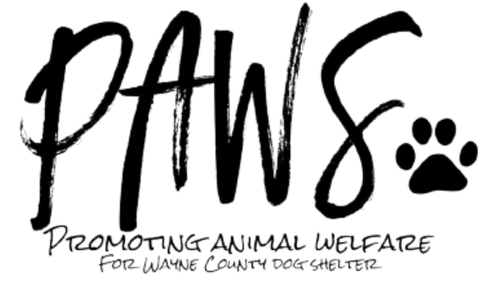PROMOTING ANIMAL WELFARE IN WAYNE COUNTYYOUR SUPPORT MAKES A DIFFERENCE |
Spay & Neuter Program
OUR GOAL
THE BENEFITS
The average lifespan of spayed and neutered cats and dogs is demonstrably longer than the lifespan of those not. A University of Georgia study, based on the medical records of more than 70,000 animal patients, found that the life expectancy of neutered male dogs was 13.8% longer and that of spayed female dogs was 26.3% longer. The average age of death of intact dogs was 7.9 years versus a significantly older 9.4 years for altered dogs.
Another study, conducted by Banfield Pet Hospitals on a database of 2.2 million dogs and 460,000 cats reflected similar findings, concluding that neutered male dogs lived 18% longer and spayed female dogs lived 23% longer.
The reduced lifespan of unaltered pets can, in part, be attributed to an increased urge to roam. Such roaming can expose them to fights with other animals, resulting in injuries and infections, trauma from vehicle strikes and other accidental mishaps.
A contributor to the increased longevity of altered pets is their reduced risk of certain types of cancers. Intact female cats and dogs have a greater chance of developing pyometra (a potentially fatal uterine infection) eliminates uterine and ovarian cancer, and dramatically decreases the incidence of mammary cancer, and other cancers of the reproductive system.
Neutering male pets eliminates their risk of testicular cancer and eliminates the possibility of developing benign prostatic hyperplasia which can affect the ability to defecate. Neutering a male dog prevents developing an enlarged prostate, testicular cancer, and perineal hernias. Additionally, undesirable behaviors such as urine marking, roaming away from home, and territorial aggression are decreased with neutering.
When you consider the potential long-term medical costs incurred for an unaltered pet, the savings afforded by spay/neuter are clear, especially given the plethora of low-cost spay/neuter clinics now available. Caring for a pet with reproductive system cancer or pyometra can easily run thousands of dollars—five to 10 times as much as a routine spay or neuter surgery. In cases where intact dogs may fight, treatment of their related injuries can also result in high veterinary costs.
HOW TO HELP
PAWS' goal for 2024 is to start a sustainable Spay & Neuter program that can be continued annually for the pets at the Wayne County Dog Shelter & Adoption Center. The benefits of spay & neuter are clear and will help to reduce overpopulation of pets in Wayne County, increase the life spans of pets that are adopted from the shelter, and lessen the expense cost for the adopters, as they won't have to spend additional money towards spaying or neutering after the adoption process.
